| | | | | | Let's get real for a sec: How many hours have you spent online this week? It's probably more than you'd like to admit. I'm not here to shame anyone (my screen time report is scary too), but have you ever noticed that the more plugged in you've been, the more unplugged you feel from actual human connection? | | | | It's wild, right? We live in the most "connected" time in history. You can tweet, DM, Snap, or scroll your day away. Yet somehow, despite living in a world that rewards being chronically online, we're left feeling... a little hollow. It's as if we're watching life happen through a screen instead of actually living it. | | | | Listen, I live, breathe, and work in social media so I'm not going to tell you to completely log off for your mental health. But it's important to remember that you have the power to choose how you interact with your feed. | | | | We don't have to just consume content mindlessly—we can also use our online spaces to foster real, meaningful connections. It's about finding balance, setting boundaries, and remembering that behind every profile picture is a real person with thoughts, feelings, and a desire to connect, just like you. | | | | Loneliness isn't something to be ashamed of—it's a signal that we're craving deeper, more authentic relationships with the people around us. And, in our always-online world, the first step to finding those connections might just be living with more intention amidst all the digital noise. This issue will give you the tools to do just that. | | | | —Jordan Fink, Head of Social Media and Community | | | | | | | |  | | | | | Scroll with intention. | | Before you sign in to your social media apps, take a moment to reflect on your intent. Are you seeking an escape, connection, interaction, or inspiration? Understanding your goals can significantly influence how you engage with these platforms and affect your overall experience, says psychologist Miriam Kirmayer, PhD. On the flip side, passive consumption—AKA scrolling through your feeds aimlessly—can heighten feelings of loneliness, regardless of whether you're viewing posts from friends or influencers. | | To get ahead of this, try approaching your social media use with more purpose, Dr. Kirmayer suggests. Is it inspiration you're looking for? Set your timer for 15 minutes and try to spend that time looking only at home decor accounts you love. If you're on Instagram, it can help to create a folder with these accounts so you don't get sidetracked. If you're looking for some levity in your day (and who isn't?), it's totally fine to indulge in some memes. But when you share them with a friend, add a thoughtful note about the memory it jogged for you to foster genuine connection, says Dr. Kirmayer. Instead of mindlessly hitting the like button for every post you see (guilty!), drop a kind comment or send a meaningful message to someone instead. By setting goals and time limits around your social media usage, you're reducing the feelings of isolation that can be so common on these apps. | | | | To set you up for success, consider unfollowing any accounts that aren't serving you anymore, like those that rope you into the comparison game, make you feel bad about yourself, or eat up your time with consistent passive scrolling, says Dr. Kirmayer. "It's about cutting through the noise to focus on meaningful connections with the people who matter," she explains. Even social media apps are finally getting the hint—now you can easily mute that one friend who overshares, block ads, and even tell IG "No thanks!" to suggested posts for 30 days, giving your feed (and your brain) a little peace and quiet. With these tools and a little focus, your online experience is bound to feel more connected and uplifting. | | | | | | 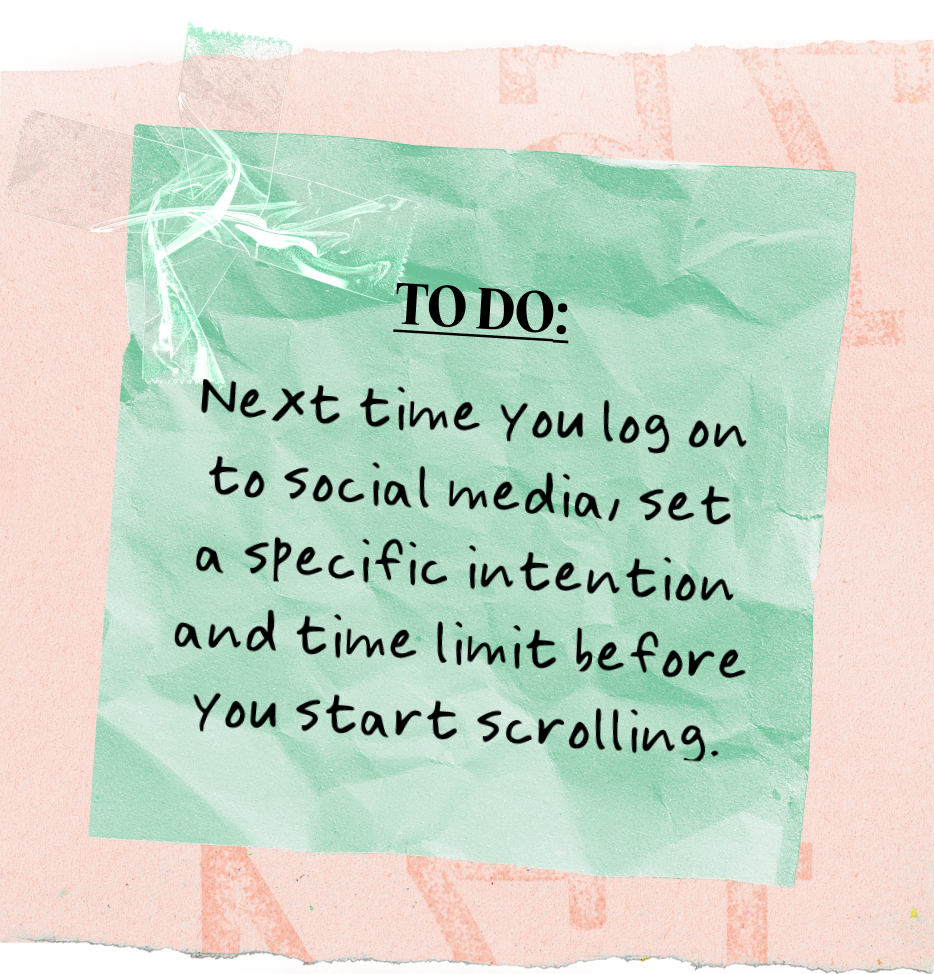 | | | 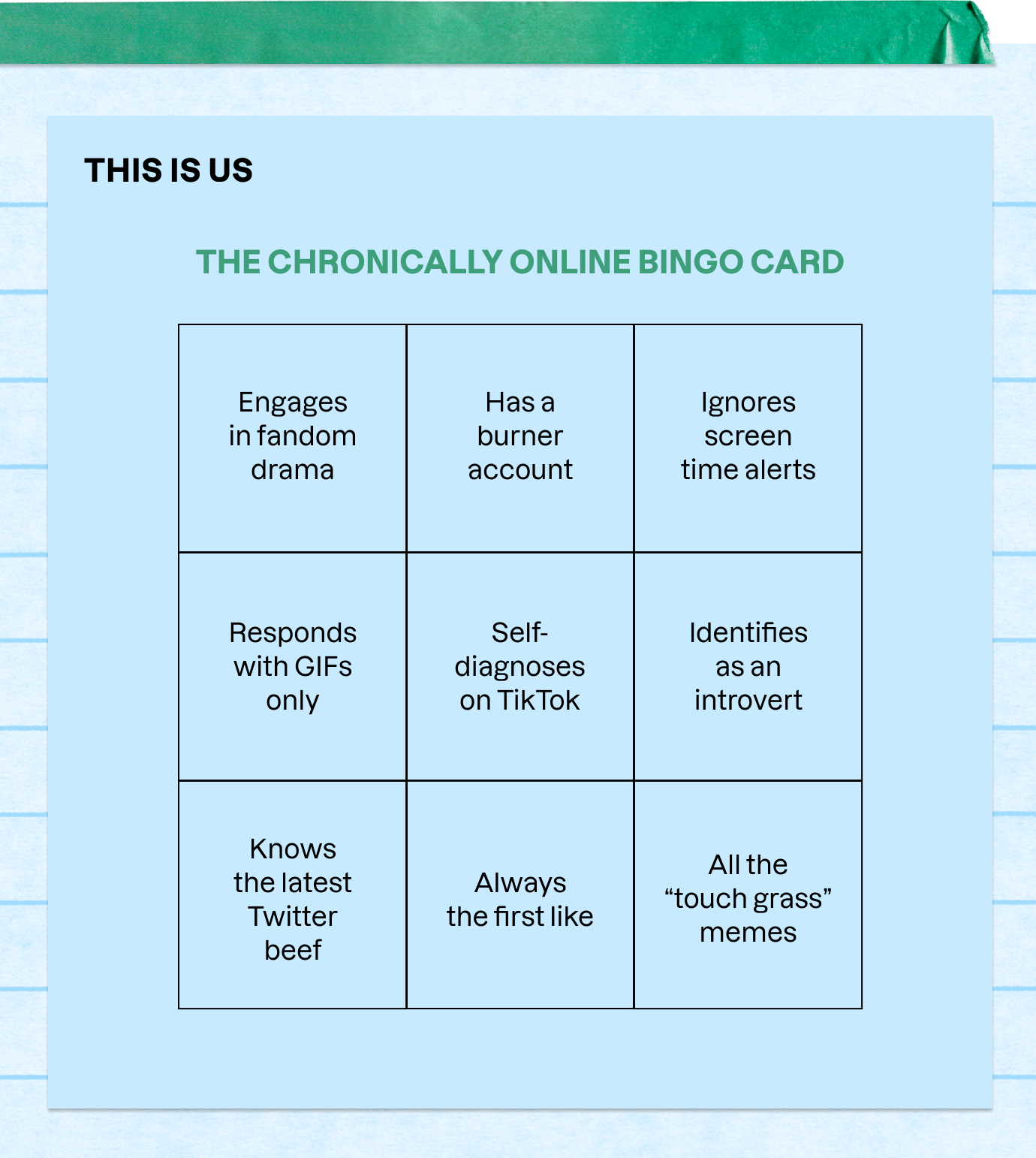 |  | |  |  | | | | | | Find your people. | | | | Ever found yourself scrolling through a sea of memes, hot takes, and "which potato are you?" quizzes and wondered, Where are my people? You're not alone! In our hyper-connected world, it's surprisingly easy to feel...well, disconnected. The challenge isn't that we can't find people—it's finding the right people in the right places. Whether online or IRL, being part of a community can provide us with a sense of belonging, emotional support, and a deeper understanding of ourselves. | | | | Finding the right community online isn't just about showing up; it's about actively engaging and curating your social spaces to foster genuine connection and growth so that you don't feel like just another avatar floating around in cyberspace. "I encourage people not to just passively experience community but find ways to participate in it," says therapist Alo Johnston, LMFT. | | | | This might look like joining or starting a Facebook group for people interested in your fave hobby, a subreddit for people dealing with a similar medical condition, or a channel in a Discord server for fans of your favorite video game. | | | | The key is to hunt for spaces that prioritize conversation, where everyone's voice can be heard, and where there is a focus on engaging with one another over passive content consumption. Choose communities that encourage sharing, vulnerability, and mutual respect. Sometimes that means a smaller-sized group is better, says Johnston: "People will always act differently in a space of thousands of people, so keeping it small and manageable allows actual dialogue and conflict resolution to exist (which is very necessary)." | | | | Let this be your sign that the internet doesn't have to be a digital dumpster fire—it can be an amazing, meaningful part of your life if you curate it right! | | | | | | | | 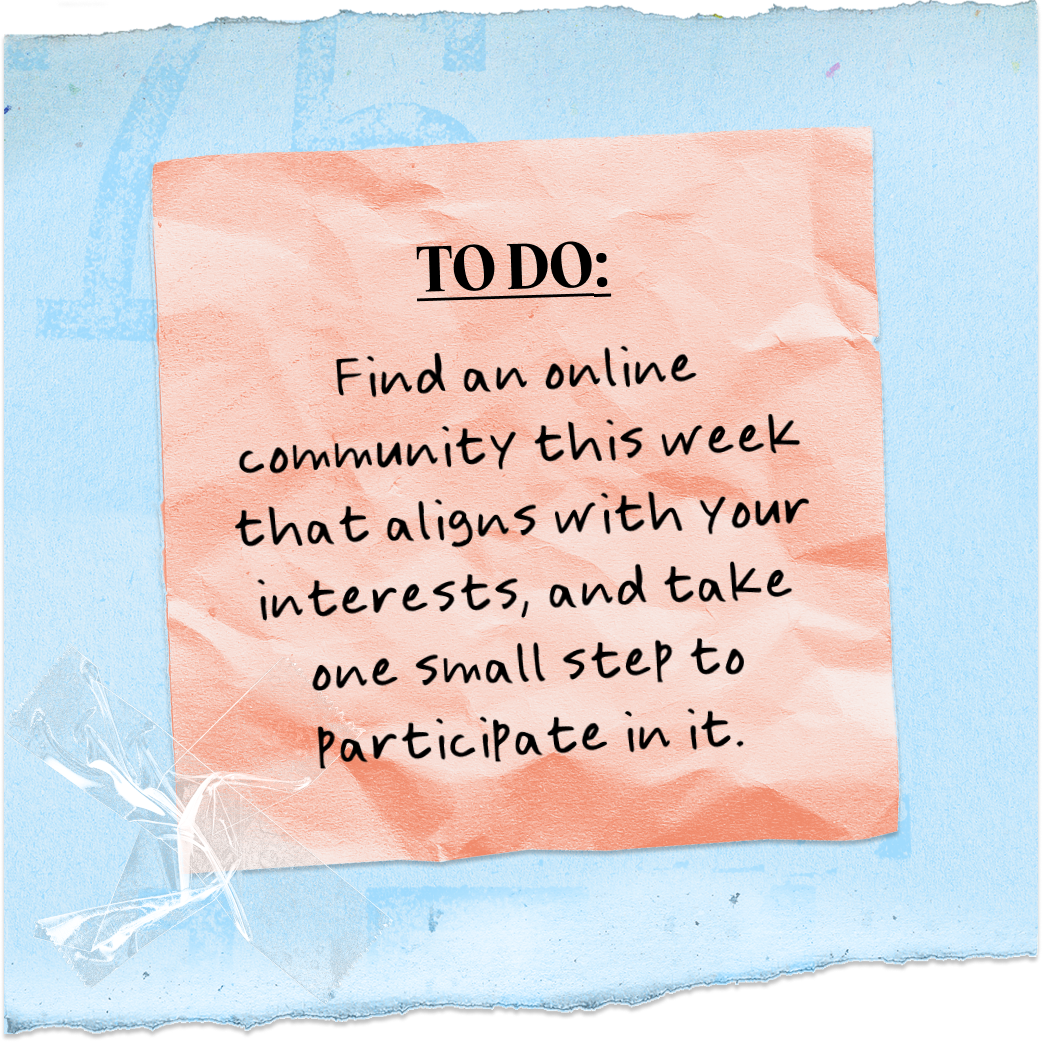 | | | 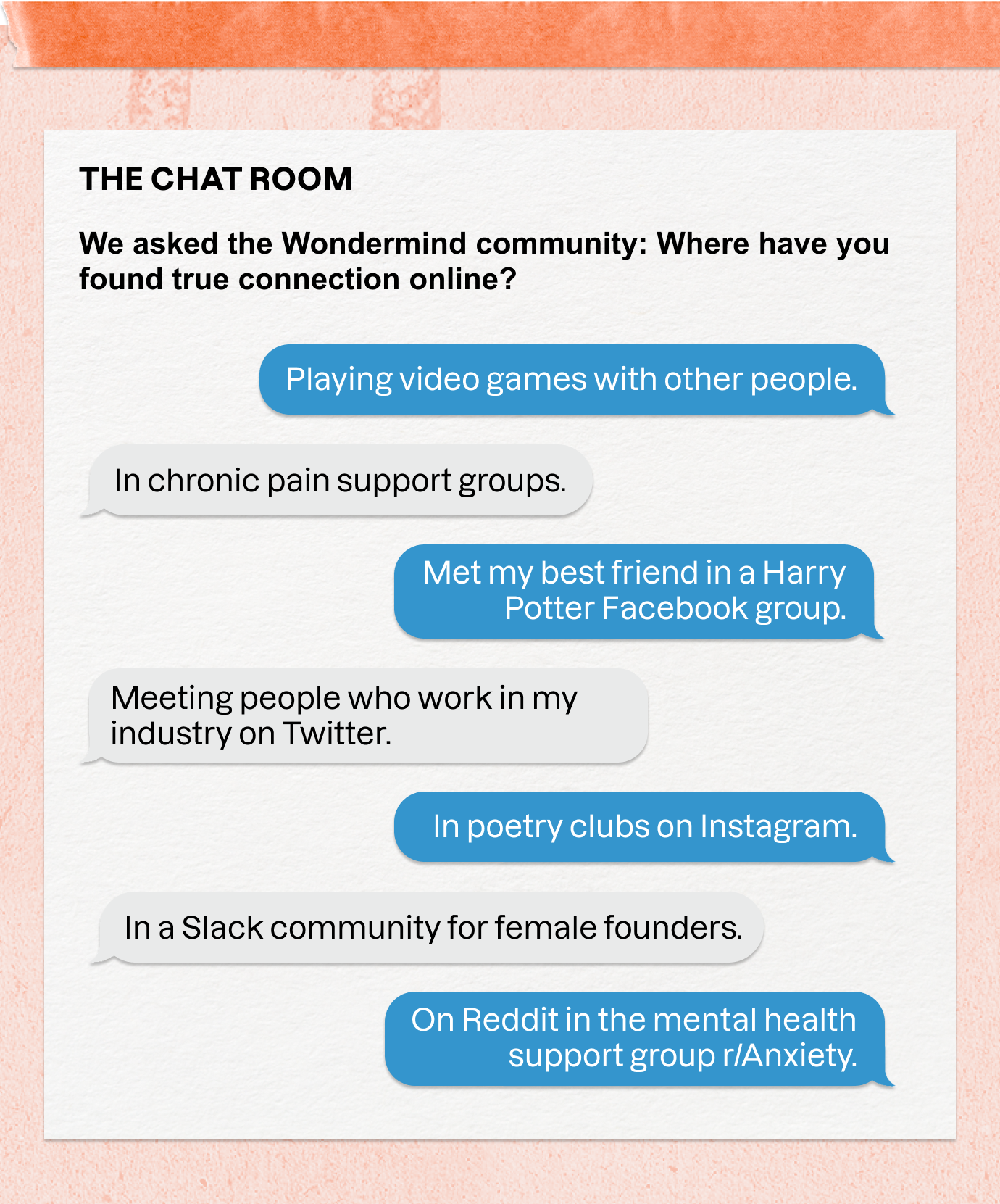 | 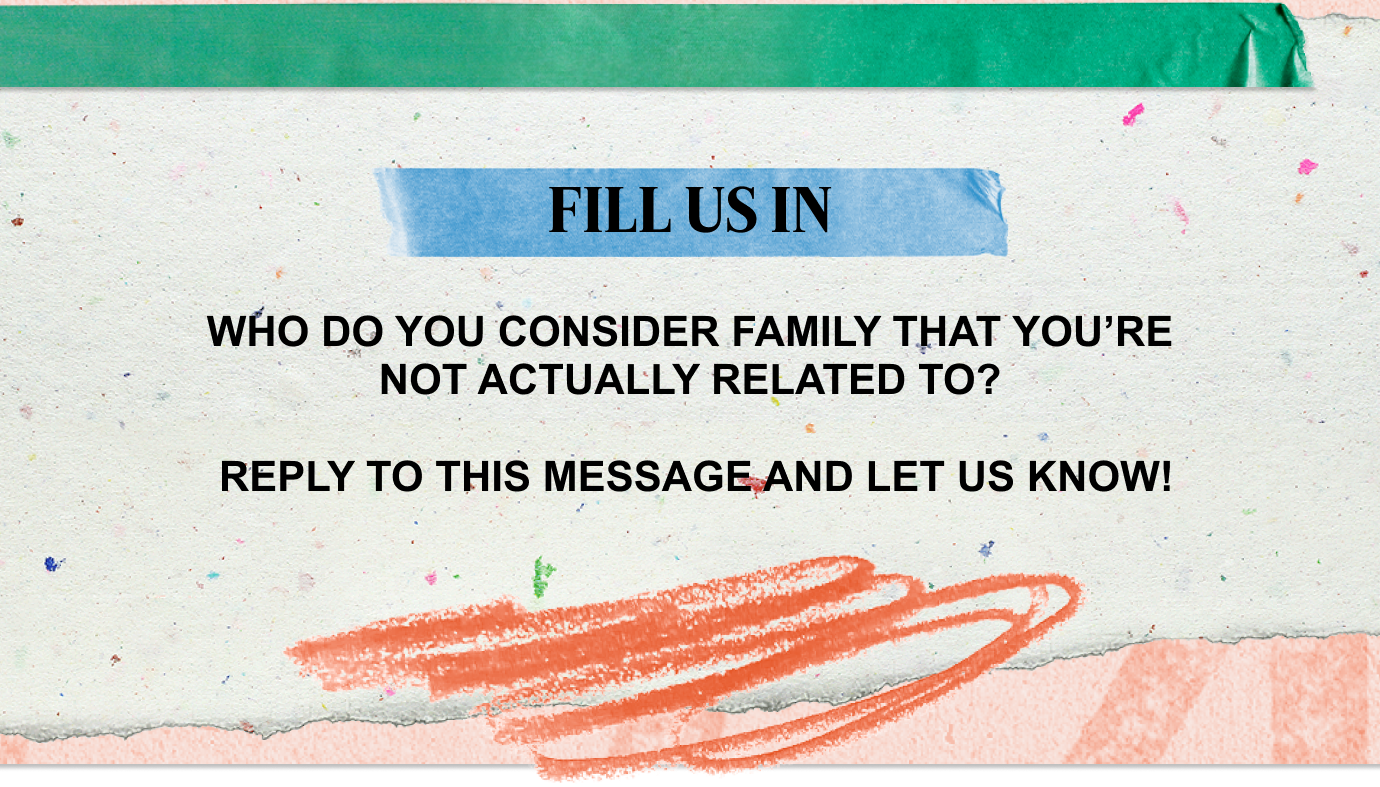 | |
Nema komentara:
Objavi komentar